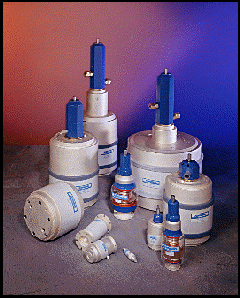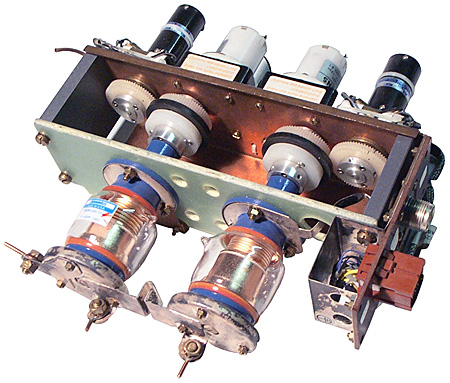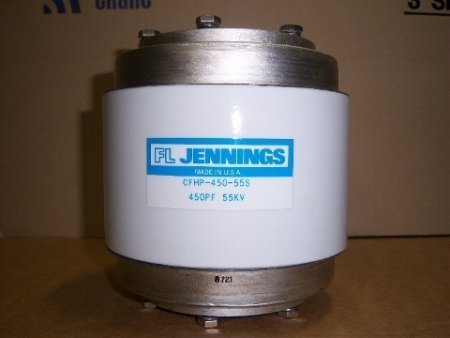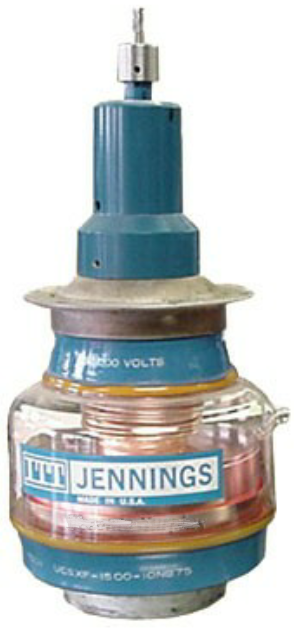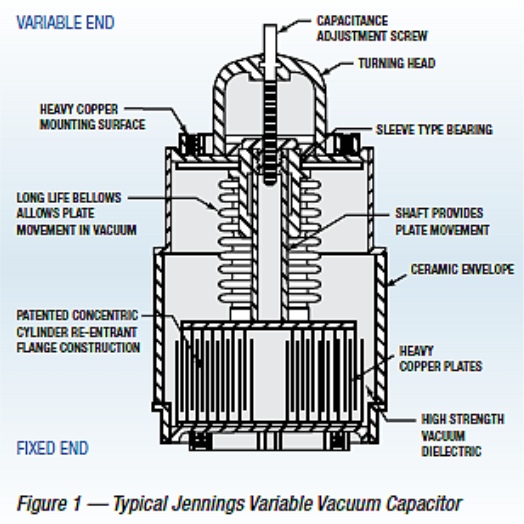Applications:
Jennings high voltage vacuum capacitors have unique capabilities that make them particularly well suited for high-power
oscillator and amplifier circuits. Through their use, designers have been able to produce transmitters that are smaller in size, offer
superior, more reliable performance, and are far easier to tune and keep tuned. Problems caused by dielectric breakdown,
leading to expensive and critical downtime, are minimized because these units are self-healing after moderate overloads.
In both high power transmitters and other high voltage capacitor applications, Jennings vacuum capacitors are widely used for
such circuits as:
•Power amplifier tank circuits
•Output of pi networks
•Neutralizing circuits
•Grid and plate blocking circuits
•Antenna coupling and "rejecter" tap circuits
•Pulse shaping in the output circuit of magnetrons
•Feed-through capacitors for harmonic attenuation
•Dielectric heating equipment tank circuits
•Low-inductance, high-current bypass applications
•Non-magnetic capacitors for resonance imaging (MRI or NMR)
Features:
•High Voltage Rating: High dielectric strength of a vacuum plus freedom from dust contamination, humidity, etc.,
permits maximum voltage rating for a given size and capacity.
•High Current Rating: Low losses and rugged copper construction permit the handling of high RF currents with
convection cooling only.
•Space Saving: For a given capacity and voltage rating, vacuum capacitors occupy a minimum amount of space.
•Wide Tuning Ranges: High ratio of maximum-to- minimum capacity (up to 150:1) make vacuum capacitors desirable
for wide tuning ranges.
•Low Losses: Losses in a vacuum capacitor are so small that for most applications they can be considered as
negligible. Construction materials and the vacuum dielectric permit the handling of large RF currents at high RF
frequencies that would destroy capacitors with other dielectrics.
•Self-Healing: Vacuum capacitors can withstand momentary overloads that would permanently damage other units.
•High Altitude Operation: Vacuum sealing permits the operation of vacuum capacitors at high altitudes without the
degradation that occurs with other types.
